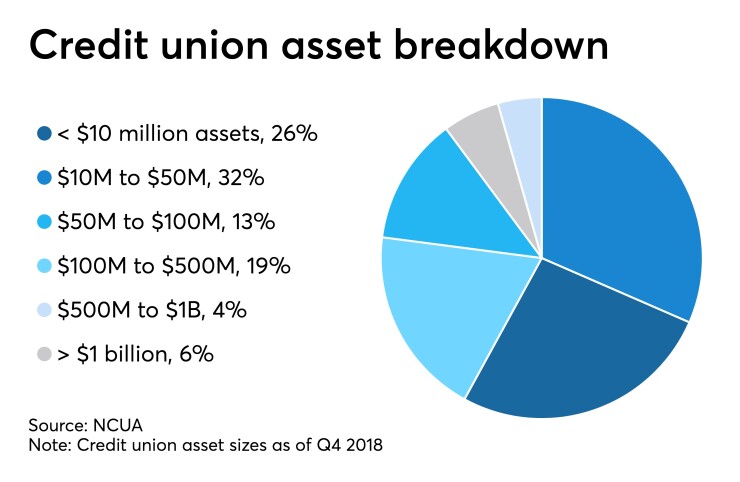As the number of credit unions buying banks has ballooned in recent years, bankers have been left wondering how they can flip the script.
Alliance Bank Central Texas in Waco may have figured out a way to do just that with a unique deal with Texas Farm Bureau Federal Credit Union. The credit union, also based in Waco, sold its loans and its only branch to the $315 million-asset Alliance.
It may pave the way for similar bank-credit union deals, particularly as some smaller institutions continue to struggle.
“Discussions of this nature have recently started to come to the surface in the banking industry, if for no other reason than the quid pro quo of if it’s good for a credit union to buy a bank than why not vice versa?” said Dennis Holthaus, managing director for Skyway Capital Markets in Tampa, Fla. “Since the focus and discussion of bank-credit union transactions is in its early stages it is hard to say if this is a developing trend, but my guess would be, yes.”
In 2018,
But there have been no similar bank purchases of credit unions. That's partly because the process has always been difficult. The last such successful deal was in 2007. But in 2010, the National Credit Union Administration made the process even more difficult. Now, a credit union that sells itself to an independent third party must establish a market valuation and the purchasing bank must pay the credit union at least that amount. The new rules also require a series of votes by the credit union members on the proposed transaction.
As a result, it's easier to just sell pieces of a credit union to a bank rather than the whole institution, experts said.

A spokesman for Texas Farm Bureau Federal Credit Union said the membership approved the sale on March 25. The spokesman said the pending retirement of several veteran employees prompted the sale. In addition, the $6.7 million-asset credit union had difficulty “keeping up with technology," he said.
The institution, located in the Texas Farm Bureau’s building, reached out to several credit unions about a possible merger, but was rebuffed when maintaining the headquarters branch was made a condition.
“Some said they would take us, but they wouldn’t put anybody here, so we went with a bank,” the spokesman said.
Alliance Bank did not respond to requests for comment.
Other banks could see the transaction as a model to follow. Richard Garabedian, a lawyer at Hunton Andrews Kurth in Washington who represents credit unions and banks, said he works with consultants who are talking with banks that have an interest in acquiring credit unions.
There are several reasons why a bank would want to acquire a CU or some of its assets, such as adding executive talent, eliminating a competitor, entering a new market, expanding their footprint and picking up new customers, experts said.
These deals could also help a bank diversify its loan portfolio if it is too heavily concentrated in commercial real estate. Banks with CRE loans that exceed a certain threshold face additional scrutiny from federal regulators.
“Many of these reasons are similar to drivers for a credit union acquiring a bank,” Garabedian said.
Cutting against that, however, is that the small size of many credit unions may make them less attractive to bank buyers. More than 3,100 credit unions had less than $50 million in assets at Dec. 31, according to the NCUA. The time and resources necessary to get regulatory approval to buy and then integrate a relatively small target may not make business sense, Garabedian said.
The loan portfolios at credit unions are also quite different from those of community banks. Holthaus said the credit union loan books are primarily consumer loans, while bank portfolios are more heavily weighted toward commercial credits. Credit union loan portfolios tend to be smaller, so a bank might not be interested in spending the time necessary to buy the credits.
Still, credit union members may be open to such transactions. Their biggest concern is usually their interest rates and getting good service, Garabedian said. Members could also see a payout from a sale to a bank, which could be another motivating factor.
“They don’t really care if it is a bank or a credit union,” Garabedian said. “I am getting some rumbling from colleagues in the industry is there will be more of these bank purchases of credit unions.”





